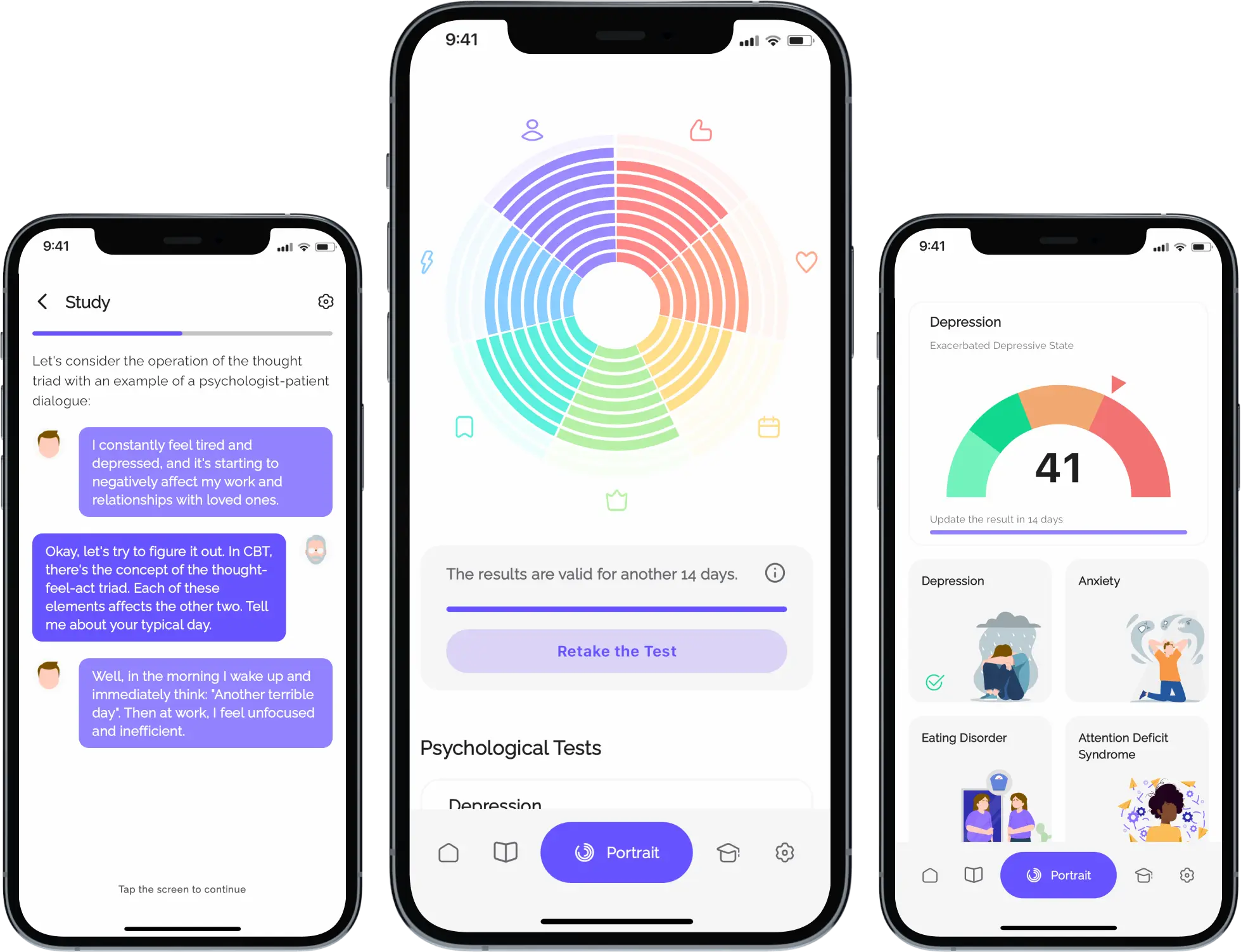
Sometimes people mistakenly refer to the belief in personalization as “megalomania”.
However, this does not necessarily indicate illusions of grandeur, but rather reflects a worldview in which a person prone to personalization places themselves at the center of the universe: all events seem personally connected to them.
Internally, this is not experienced as a sense of immense power or strength, but as constant pressure, attention from others, and hidden hostility.
Everything we hear is an opinion, not a fact. Everything we see is a perspective, not the truth.
Marcus Aurelius
To overcome this harmful style of thinking, it’s important to identify the true causes of the problems that have arisen.
Instead of blaming yourself for things that are beyond your control and, consequently, feeling guilty towards the entire world, focus on analyzing the situation.
More content in our app
You're only seeing a portion of the content. In the app, you'll find numerous interactive articles. Additionally, there are psychological tests to track your mood dynamics, a daily planner, an automatic thought journal, and much more!

Use the following questions for analysis:
Example:
Imagine a situation: you arrive at work, and your colleague doesn’t greet you. Immediately, a thought arises: “I did something wrong. It seems she doesn’t like me. Maybe I said something wrong yesterday, or I didn’t greet her, and now she’s holding it against me.”
People are not disturbed by things, but by their views on them.
Epictetus
Analyze your thoughts using the above questions and write down alternative rational responses:
Remember that we cannot control everything in life. Sometimes we just need to accept what happens and not try to explain everything through our own mistakes.
You can also use the following exercises to work on your belief:
Imagine a friend tells you that his colleague didn’t greet him in the morning. How would you react? What would you say to him? What advice would you give? This will help you distance yourself from your own emotions and look at the situation more objectively.
Try to finish the following sentence: “If I were really responsible for this, it would mean that...”
For example: “If I were really responsible for the project’s failure, it would mean that I could control all the participants and prevent any mistakes.” But in reality, many factors are beyond your control.
“If I were really responsible for my friend being upset with me, it would mean that I could read his mind and guess his desires.” But that is impossible.
Completing the “if I were really...” phrase will help you analyze your responsibility and realize that you can’t always control everything that happens.
By using these simple techniques, you can rid yourself of negative thoughts and free yourself from the feeling that you are responsible for everything.
Remember that you are not the center of the universe and don’t have to be responsible for all the events around you. It’s better to focus your energy on solving problems and creating a happier and more harmonious life.







